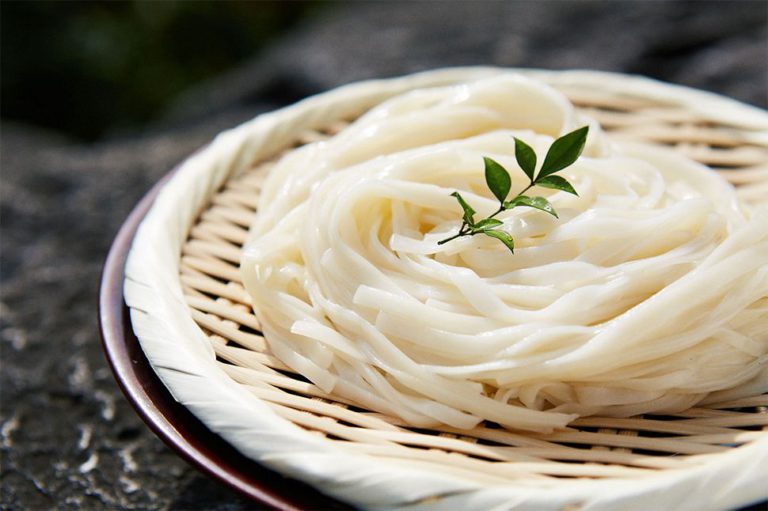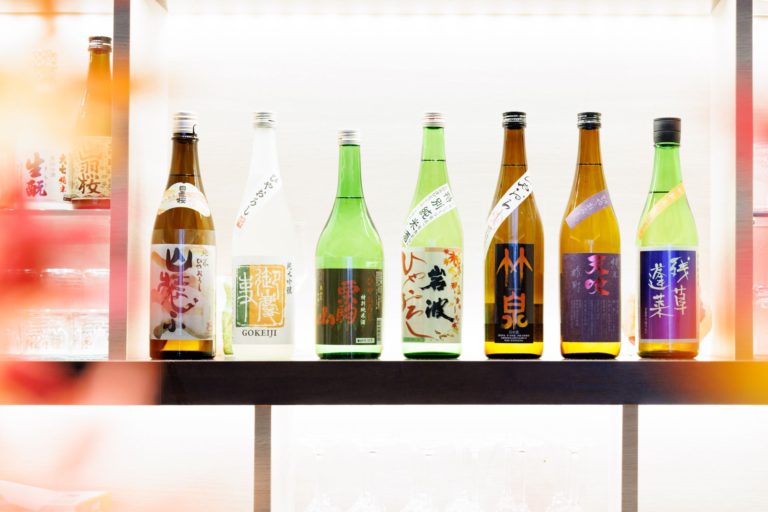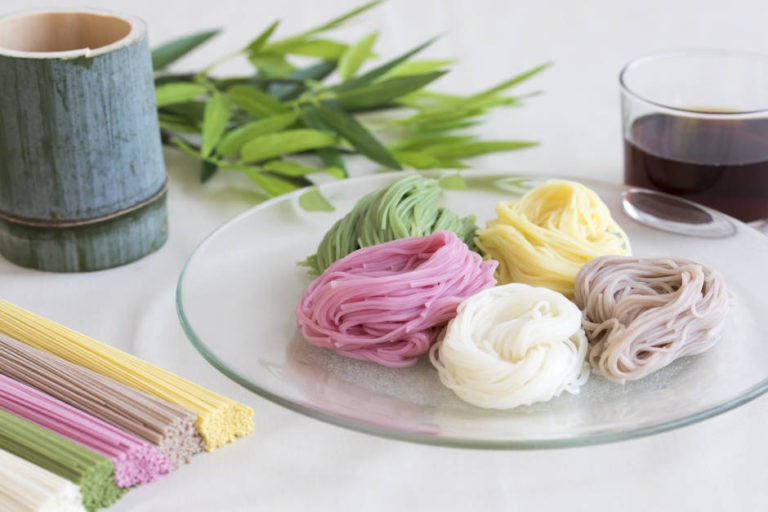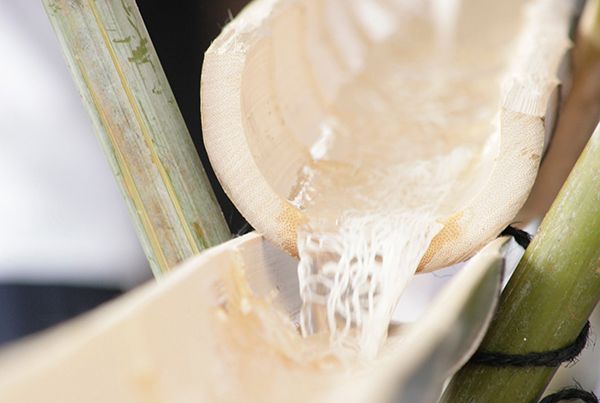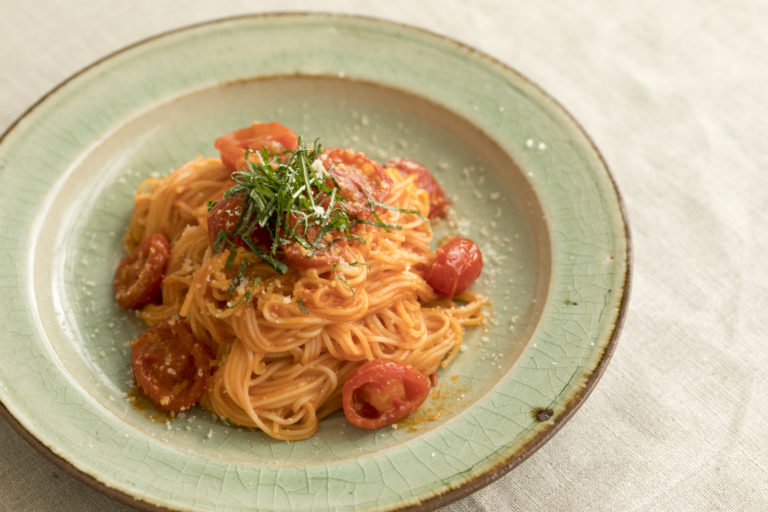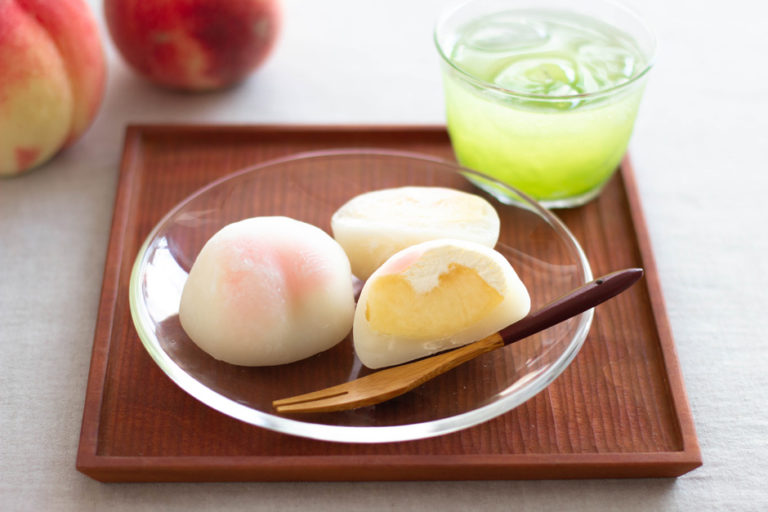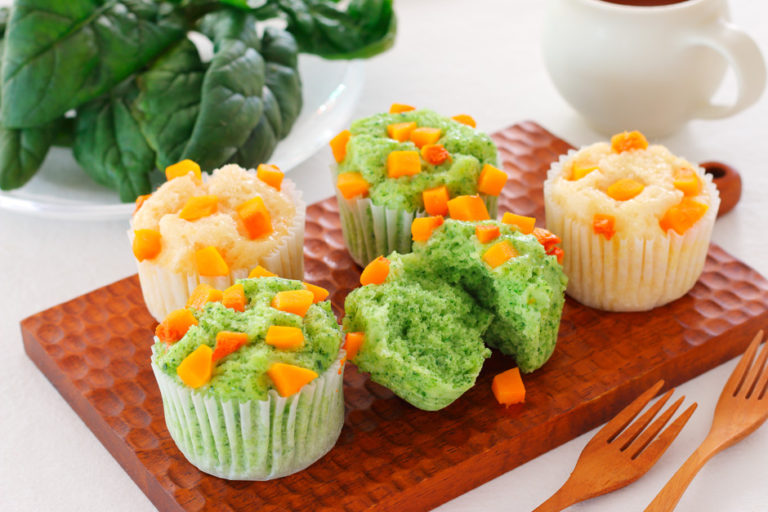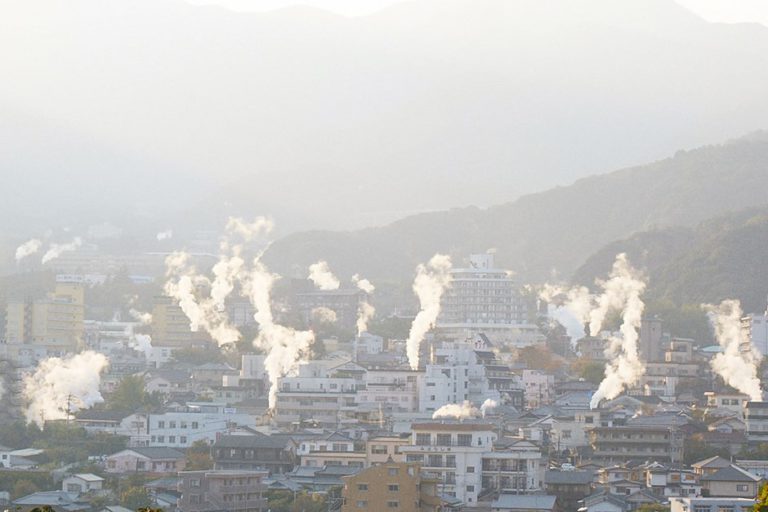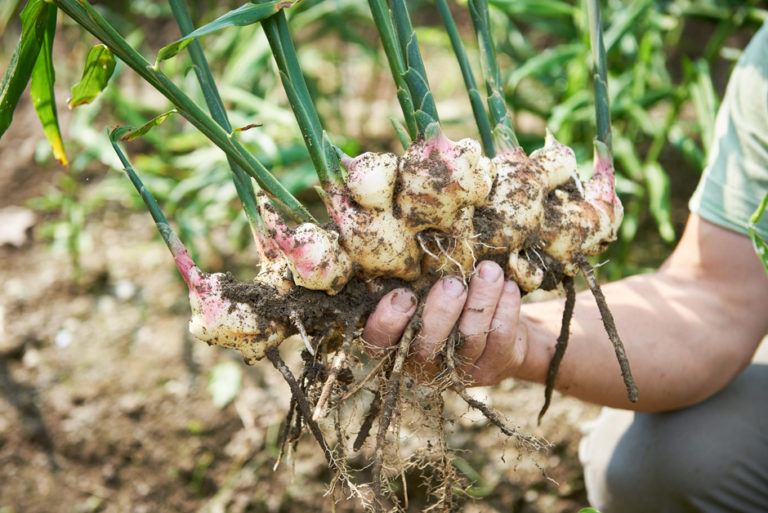Yuzawa City, Akita Prefecture ,Juichi Takahashi ,Inaniwa Udon Noodles ,hand-rolling process
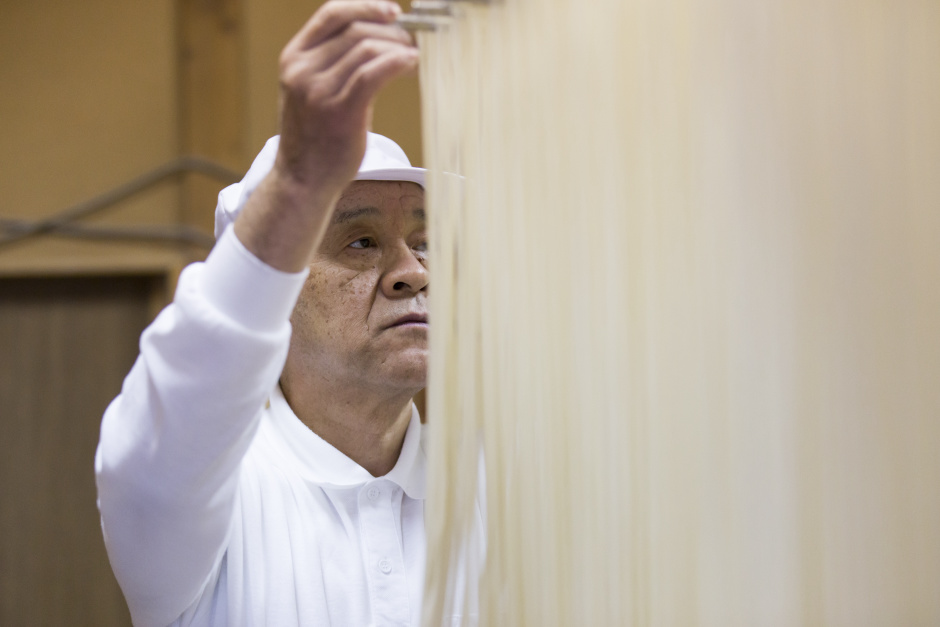
We visited a master noodle-maker who was born and raised in Inaniwa, the land of pure water and clear air, and has dedicated his life to making these famous noodles.
A way of noodle-making that requires the sense of understanding how the udon “feels.”
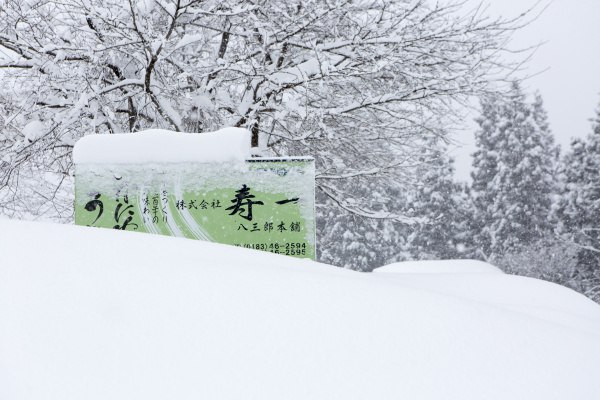
When we visited Yuzawa in February, the snow reached as high as a fully grown person. As we proceeded on the sheet white, snowy mountain path, we arrived at the workshop of Juichi Takahashi, the master of the Inaniwa udon.
Juichi was born and raised in Inaniwa. He started making udon when he turned 30. Fast forward 30 more years, and he has been fastidiously making the noodles day after day in this quiet workshop in the mountains.
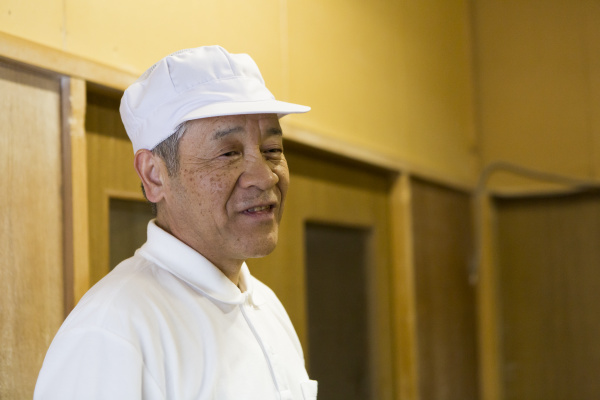
Inaniwa udon is said to be a premium quality product because of the incredible effort, time and intuition that goes into just one strand of udon. Mass production is possible using machines to improve efficiency, but Juichi says that that is not the ideal way to make udon.
“I would like to watch every step from start to finish and make my udon with my own hands and eyes while I still can. So I will not automate the process, and I have no plans to expand my production. It means the most to me when people say, “your udon was delicious,” chuckles Juichi cheerfully.
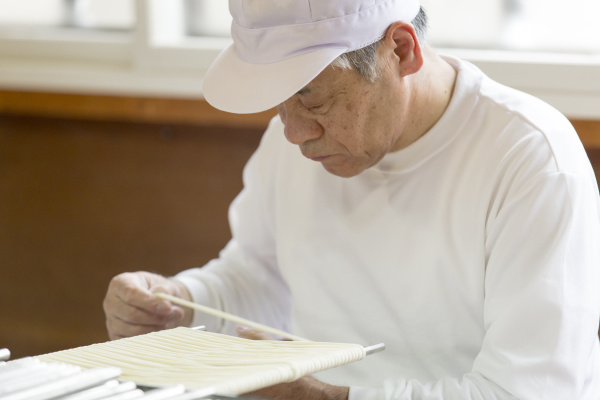
One of the things Juichi likes to say is, “you have to know how the udon feels.” He allowed us to watch his udon making process carefully, so we would understand what he meant.
When we stepped into his warm, wooden workshop, we were enveloped in the sweet smell of wheat. The air moisture and room temperature are all adjusted just for the udon. We understood why Juichi said “I cannot make my ideal udon unless I am in this workshop, where I have spent years making the noodles.”
Inaniwa udon by the master Juichi Takahashi
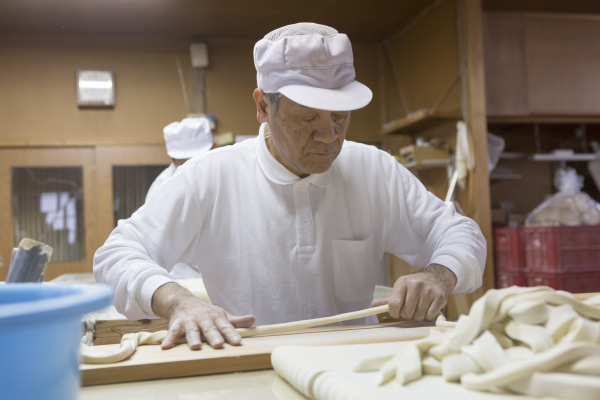
Inaniwa udon is made only with wheat, water and salt. Because it is so simple, the quality of its ingredients and delicate craftsmanship determine the quality of the end product.
It takes about three days to make the udon, because the dough needs to be matured between each step: it is kneaded, rolled out, twisted by hand (hand-rolling process) and dried. The maturing process is essential for the unique body and smooth texture of Inaniwa udon. With intuition gained from decades of experience, Juichi forecasts the weather three days in advance, in anticipation of when the udon will be completed and adjusts the strength and amount of brine needed to make the dough.
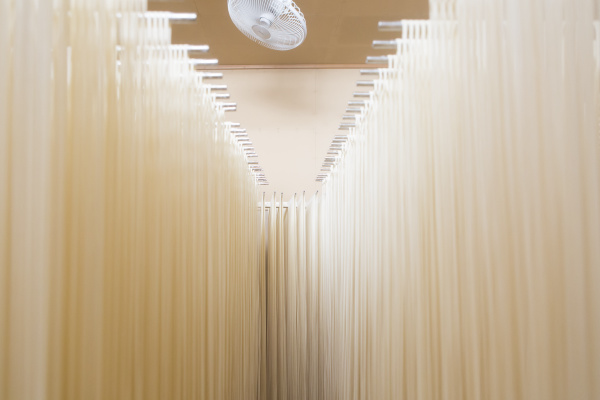
Juichi’s goal is to make smooth, elastic and chewy noodles. Every step calls for utmost attention to detail, but the most unnerving part is apparently the drying process. The dough is put over two rods in a figure eight, strung on a frame (a loom) and left to dry slowly while closely monitoring the temperature and humidity.
“The important thing is to dry the udon all the way through to the center, taking just the right amount of time. How much time, and at what temperature and humidity, is all down to intuition. That is why I always work to accommodate how the udon feel. Whether in the morning or at night, I do whatever the udon wants me to do. I think it is only possible because this is such a small workshop.”
Savoring the udon by the master noodle-maker, with different textures according to the section of the noodle
Juichi’s Inaniwa udon, created with so much work and attention, has a beautifully natural cotton color and is incredibly smooth. It can bend like a bow because of its robust elasticity and chewy texture.
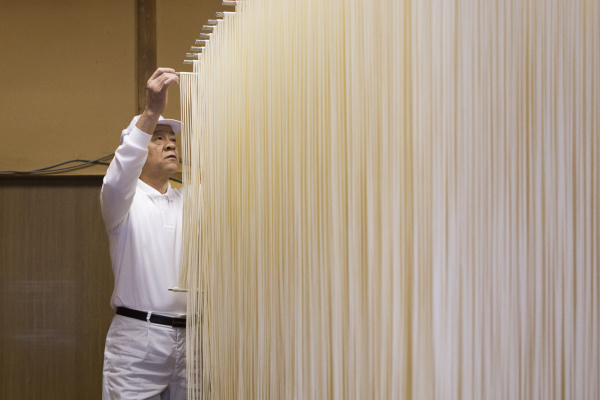
We asked Juichi for the best way to enjoy Inaniwa udon. “It is best to serve it cold. After you boil it, cool it down with cold water to tighten it, so you can enjoy the rich wheat flavor, and the smooth, chewy texture,” says Juichi.
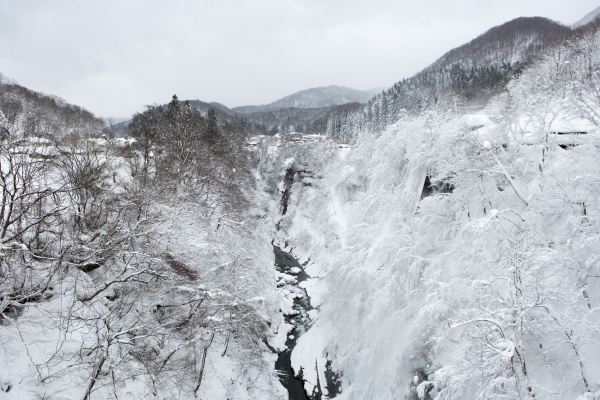
“I think udon making is my vocation. Making things with your hands is incredibly interesting. Even after 30 years, I still think I haven’t mastered it and I just need to keep on going. I am grateful that there are people who enjoy my udon and that I can continue making it. I think that many people in the world have never had Inaniwa udon and I hope that they can taste it and see how good it is,” he continues.
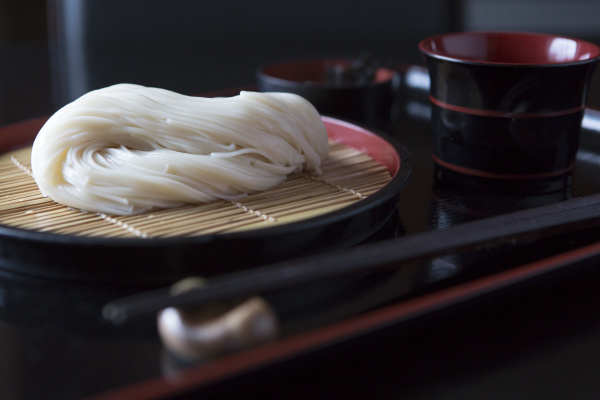
We invite you to savor the ultimate Inaniwa udon created by the master noodle-maker born and raised in a small town in Akita.

